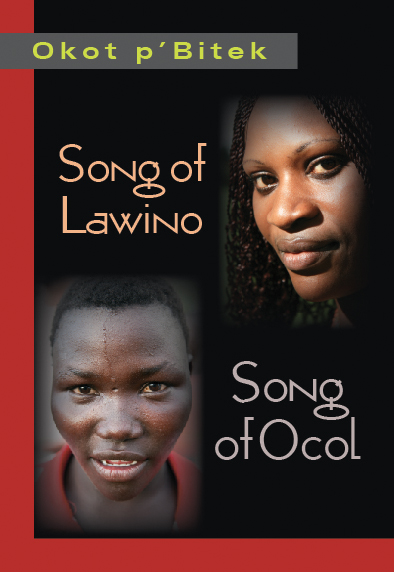“This is a wonderful book to teach a course on postcolonial African literature. Students find Lawino’s spirit engaging, the poetry nonthreatening, and the central conflict between African and European culture meaningful. They also appreciate the humor. As an example of postcolonial literature, it serves to highlight many of the field’s primary themes: language; religion; orality vs. scribal; tradition vs. “progress,” and more.” — Martin McKinsey, University of New Hampshire
This is a great piece for looking at post-colonial Africa as well as at changing gender roles and expectations. It gives voice to a subaltern consciousness. It pairs well with Armah’s The Beautyful Ones Are Not Yet Born. It is excellent for history, literature, and post-colonial studies.” — Paul Bjerk, Texas Tech University
“It is my favorite book to teach for my Third World Literature class. I am happy it’s back in print.” — Christine Ohale, Chicago State University
“These sequences are among the treasures of East African poetry and poetics.” — William Shullenberger, Sarah Lawrence College
“It is simply refreshing to have this vital title and seminal contribution to the development of African literature back on our shelves. Thank you immensely. I missed not having it to teach.” — Tess Onwueme, University of Wisconsin, Eau Claire

151 pages, $16.95 list
1-4786-0472-7
978-1-4786-0472-3
© 1967
paperback
eBook availability
Similar Titles
Song of Lawino & Song of Ocol
During his lifetime, Okot p’Bitek was concerned that African nations, including his native Uganda, be built on African and not European foundations. Traditional African songs became a regular feature in his work, including this pair of poems, originally written in Acholi and translated into English. Lawino’s words—in the first poem—are not fancy, but their creative patterns convey compelling images that reveal her dismay over encroaching Western traditions and her Westernized husband’s behavior. Ocol’s poem underlines Lawino’s points and confirms her view of him as a demeaning and arrogant person whose political energies and obsession with wasting time are destructive to his family and his community.
The gripping poems of Lawino and Ocol capture two opposing approaches to the cultural future of Africa at the time and paint a picture that belongs in every modern reader’s cognitive gallery.
The gripping poems of Lawino and Ocol capture two opposing approaches to the cultural future of Africa at the time and paint a picture that belongs in every modern reader’s cognitive gallery.
Reactions